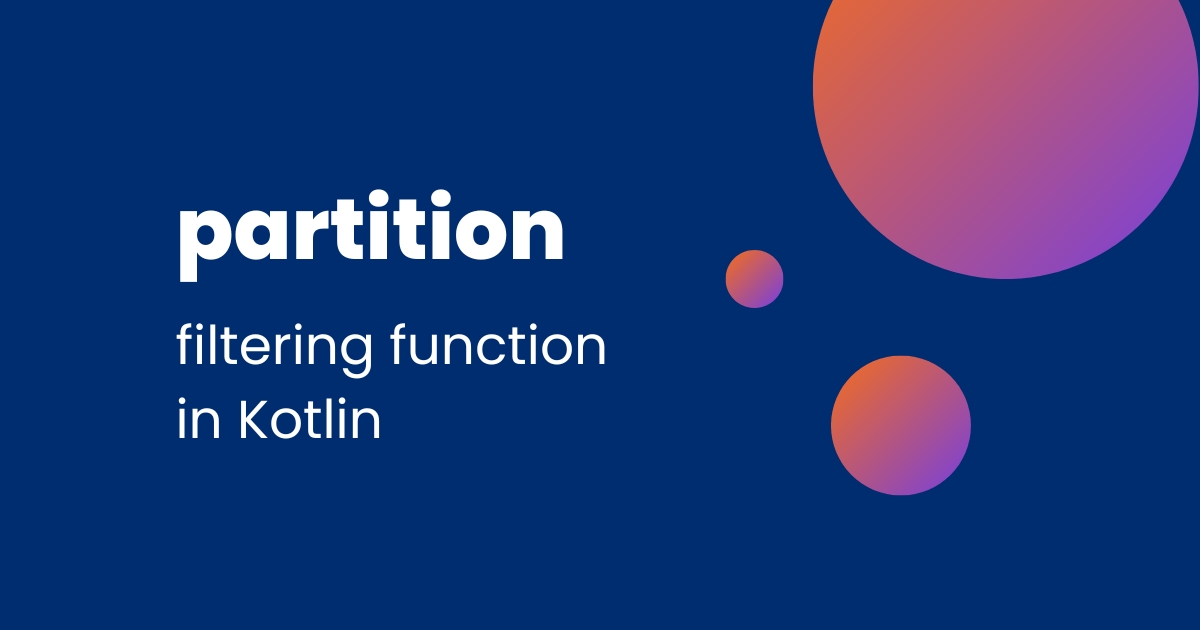partition - filtering function in Kotlin
- Authors
- Name
- Amit Shekhar
- Published on
I am Amit Shekhar, Co-Founder @ Outcome School, I have taught and mentored many developers, and their efforts landed them high-paying tech jobs, helped many tech companies in solving their unique problems, and created many open-source libraries being used by top companies. I am passionate about sharing knowledge through open-source, blogs, and videos.
Join Outcome School and get high paying tech job: Outcome School
Before we begin, we’d like to mention that we’ve launched our YouTube channel. Subscribe to the Outcome School YouTube Channel.
In this blog, we will learn about the Kotlin filtering function - partition. It filters a collection by a predicate and keeps the elements that don't match it in a separate list.
There are many useful collection functions in Kotlin. It is good to know about those and use those based on the requirement. One of those collection functions is partition.
partition filters a collection by a predicate and keeps the elements that don't match it in a separate list.
Let's learn by example.
Consider a data class User like below:
data class User(val id: Int, val name: String, val isMentor: Boolean)
And, a list of User:
val users = arrayOf(
User(1, "Amit", true),
User(2, "Ronaldo", false),
User(1, "Messi", true),
User(3, "Neymar", false))
Now, let's use the partition function on this list of users to filter the users who are a mentor and the users who are not a mentor.
val (mentors, notMentors) = users.partition { it.isMentor }
Now, let's print mentors
println(mentors)
This will print the following:
[User(id=1, name=Amit, isMentor=true),
User(id=1, name=Messi, isMentor=true)]
And, when we print notMentors
println(notMentors)
This will print the following:
[User(id=2, name=Ronaldo, isMentor=false),
User(id=3, name=Neymar, isMentor=false)]
If we go through the source code, we will find the following implementation:
public inline fun <T> Array<out T>.partition(predicate: (T) -> Boolean): Pair<List<T>, List<T>> {
val first = ArrayList<T>()
val second = ArrayList<T>()
for (element in this) {
if (predicate(element)) {
first.add(element)
} else {
second.add(element)
}
}
return Pair(first, second)
}
It is doing the same thing that we would have also done. It is just that Kotlin provides these useful functions out of the box so that we can use them directly.
Note:
- It takes a
predicate. - It splits the original array into pair of lists and returns
Pair<List<T>, List<T>>. - The first list contains elements for which the
predicateyieldstrue. - The second list contains elements for which the
predicateyieldsfalse.
Prepare yourself for Android Interview: Android Interview Questions
That's it for now.
Thanks
Amit Shekhar
Co-Founder @ Outcome School
You can connect with me on:
Follow Outcome School on:
